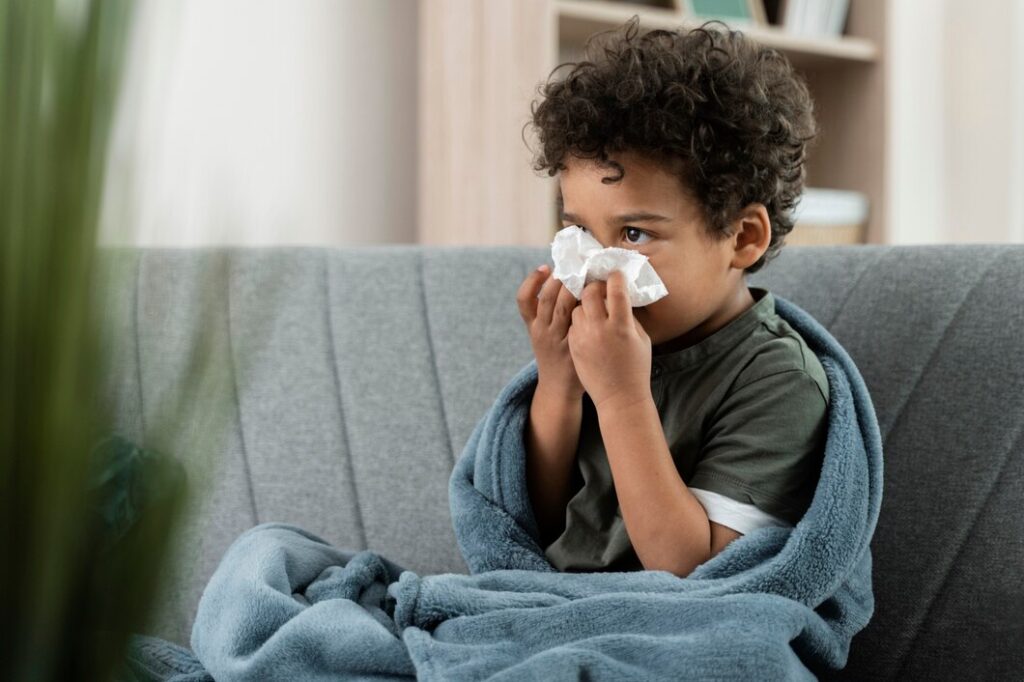As flowers bloom and trees pollinate, many individuals brace themselves for the onslaught of seasonal allergies. While outdoor allergens are often blamed for sneezing, congestion, and itchy eyes, the quality of the air inside your home can significantly exacerbate or alleviate these symptoms. Understanding the relationship between indoor air quality and seasonal allergies is essential for creating a healthier living environment.
Indoor air quality is influenced by various factors including ventilation, humidity levels, and the presence of airborne particles like dust, mold, and pet dander. Poor air quality inside the home can trap and concentrate these allergens, potentially making allergy symptoms worse. We believe in equipping homeowners with the knowledge and tools to enhance indoor air quality, thus helping them manage and mitigate the effects of seasonal allergies effectively. We will delve into how indoor air can impact allergy symptoms and offer practical solutions to improve your indoor environment for better health and comfort.
Understanding Common Indoor Allergens
At the core of addressing how indoor air quality affects seasonal allergies is identifying the common allergens present in most households. These allergens include pollen, which can enter through open windows or doors, pet dander from household pets, dust mites that thrive in bedding and upholstery, and mold spores, particularly in areas prone to dampness like bathrooms and kitchens. These substances can degrade indoor air quality significantly and if not managed properly, can trigger severe allergic reactions.
Enhancing Ventilation to Reduce Allergen Concentration
One effective strategy to mitigate allergen presence indoors is improving the ventilation of your living space. Proper ventilation helps dilute and remove airborne pollutants from indoor air, reducing the concentration of allergens. We recommend using exhaust fans in high moisture areas and ensuring that your HVAC system is equipped with up-to-date and efficient ventilation technology. Opening windows may also help when pollen counts are low outside, allowing fresh air to circulate and expel stagnant, allergen-laden air.
Regulating Humidity to Discourage Allergen Proliferation
Maintaining the right humidity level is crucial in limiting the growth of allergens such as mold and dust mites, which thrive in overly humid conditions. To achieve and maintain these levels, consider using dehumidifiers in damp areas, and ensure that air conditioning units are functioning properly, as they naturally help reduce humidity levels while cooling indoor air. Regular checks and maintenance of these devices ensure they work efficiently to help manage indoor humidity and, subsequently, allergen proliferation.
Choosing and Maintaining Air Filters Effectively
Air filters in your HVAC system play a pivotal role in trapping and removing airborne particles, including allergens. Utilizing high-efficiency particulate air (HEPA) filters can significantly improve the quality of indoor air by effectively capturing microscopic allergens that traditional filters may miss. It’s imperative to change these filters regularly, based on manufacturer recommendations or more frequently if allergies are a concern in your household. Proper maintenance of your HVAC system, including professional checks, can assure that air filters are correctly installed and functioning to their highest potential.
Cleaning Techniques to Minimize Allergens
Regular and thorough cleaning is vital in reducing allergen levels inside the home. Focus on areas where allergens are likely to accumulate, such as carpets, upholstery, and bedding. Vacuuming regularly with a vacuum equipped with a HEPA filter can capture even fine particles of dust and pet dander. Additionally, washing bedding in hot water weekly and opting for easy-to-clean furnishings can reduce allergen presence in your living spaces. For individuals sensitive to cleaning products, it’s crucial to use hypoallergenic or non-toxic cleaners to avoid triggering allergies through chemical exposure.
Strategies for Pet Owners
Pets can significantly contribute to indoor allergens through their dander and the pollen, dust, and mud they may bring into the home. To mitigate this, we suggest bathing pets regularly and establishing pet-free zones, particularly in bedrooms, to help limit allergen exposure throughout the home. Consistently cleaning areas where pets spend time is also crucial in minimizing the spread of pet dander and associated allergens.
Monitoring Pollen and Mold Levels
Keeping an eye on local weather reports for pollen and mold forecasts can provide valuable information for managing indoor air quality. On days with high pollen or mold spore counts, it’s wise to keep windows closed and rely on air conditioning to maintain comfortable indoor temperatures without introducing new allergens.
Every adjustment we make towards improving indoor air quality can significantly support those suffering from seasonal allergies. By understanding the sources of indoor allergens and applying strategic adjustments to your home environment, you can create a safer, more comfortable space that supports your overall health and well-being.
Breathe Easier with Improved Indoor Air Quality
Managing indoor air quality is a crucial step you can take to alleviate the discomfort of seasonal allergies. By understanding common indoor allergens, enhancing ventilation, regulating humidity, and maintaining a diligent cleaning regime, your home can become a haven from the sneezing, itchy eyes, and other troublesome symptoms associated with allergies. Our team at Standard Heating, Cooling & Plumbing is committed to helping you improve the air you breathe. Our experts are ready to assess your HVAC system and provide tailored solutions to ensure your indoor air quality is the best it can be.
Don’t let seasonal allergies control your comfort at home. Contact us today to schedule an HVAC service in Homewood, AL and take the first step toward a clearer, healthier indoor environment. Let us help you breathe easier, regardless of the season.

